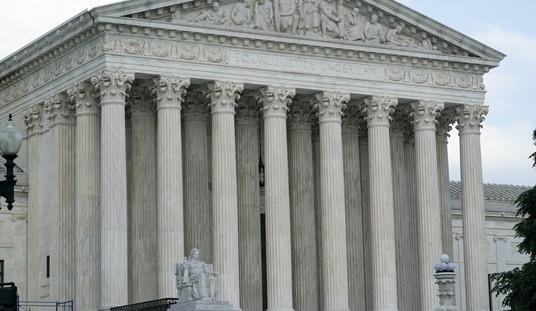Opportunity Ohio President Matt Mayer released a report titled “Competitive Federalism: Leveraging the Constitution to Rebuild America” via The Liberty Foundation of Oklahoma last week. Opportunity Ohio was listed in the report as one of thirty Liberty Foundation partners with the shared goal of advancing state-based solutions to problems faced nationwide.
The Liberty Foundation, whose launch coincided with the release of Mayer’s Competitive Federalism report, also counts established free market think tanks including Michigan’s Mackinac Center for Public Policy, Wisconsin’s MacIver Institute, the Texas Public Policy Foundation, the Oklahoma Council of Public Affairs, and the Illinois Policy Institute among its partners.
“Our plan of action is to coordinate with our partner organizations in the states to advance a competitive federalism concept to governors and state legislatures,” the Liberty Foundation website explains.
In his report, Mayer laid out the Liberty Foundation’s view that the federal government has far more control over states and individuals than the Founders intended.
“To rebalance the powers and honor our constitutional heritage, Americans should embrace competitive federalism,” Mayer wrote. “Properly defined, competitive federalism is the powerful harnessing of our tripartite sovereignty system that allows states to compete with each other over a broad range of issues to provide citizens with the best value goods and services at the lowest cost.”
“Unlike other federalism proposals, competitive federalism involves far more than rejecting a specific law; rather, competitive federalism requires the full decentralization of issues properly controlled by the states.”
Describing the chain of events necessitating a new approach, Mayer wrote, “Over the last forty years, several efforts were made to reduce the power of the federal government. All of those efforts (President Richard Nixon in 1972; President Ronald Reagan in 1981; and Speaker Newt Gingrich in 1994) ultimately failed because the system fights even the strongest reform efforts.”
“Washington and those reformers in it seem utterly powerless against the centralized behemoth of the federal government.”
Mayer identified Woodrow Wilson’s view of a Constitution subject to evolving interpretations as the root of America’s overgrown central government, describing the Great Depression as the point when “progressivism malformed the American mind and fundamentally changed how we viewed government.”
By the 1920s, Wilson and fellow progressives had set the stage for an unprecedented shift of control to DC. With the passage of the 16th Amendment in 1913, the federal government gained the ability to siphon more money from the states through the federal income tax. The same year, the 17th Amendment sharply undercut state legislators’ influence by subjecting U.S. Senate elections to the popular vote.
“As the fiscal crisis in Washington, D.C. advances, there is no better time than now to have a vigorous debate on how we best pull our country back from the fiscal brink and reinvigorate American Exceptionalism,” Mayer opined.
“By encouraging competition among the states and between the states and the federal government, our Founding Fathers guaranteed the ultimate success of America, as failure in one state couldn’t doom the entire country and state successes could be adopted and tailored by other states,” Mayer continued. “We can solve our complex problems in an iterative process as states learned from and built upon the lessons emanating from the fifty laboratories of competition across the United States.”
Mayer listed Medicaid, education, and transportation as three specific issues where the principles of competitive federalism should be applied.
“Regardless of which political party controls the two branches of the federal government, we believe governors and state legislatures, whether controlled by Democratic or Republican politicians, are best suited to serve the needs of citizens. Each state can decide how generously to fund programs. With state taxes becoming a far larger amount of each paycheck, we will have true competition among the states.”
To predicted progressive complaints that restoring power to the states and their citizens would mean a “race to the bottom” in public services, Mayer pointed out that returning more spending to the state level would mean greater cost transparency.
Combined with communications technology that makes it easier than ever for citizens to hold government accountable, empowered state officials would be forced to face the reality that residents and businesses could vote with their feet and abandon states with the worst balance of taxation and infrastructure.
As a first step toward putting competitive federalism into action, Mayer explained that the Liberty Foundation plans to ask members of Congress, governors, and state legislators to sign a simple pledge: “I pledge to do all I can as an elected official to enact or to promote legislation that honors our Constitution and returns power and taxing decisions over Medicaid, education, and transportation to the states and to the people.”
“It goes without saying that Texans and South Carolinians shouldn’t be forced to subsidize bad decisionmaking in New York and Massachusetts. Under today’s system, those states do. It is time for that system to end,” Mayer wrote.
This story originally appeared at Media Trackers Ohio.













Join the conversation as a VIP Member